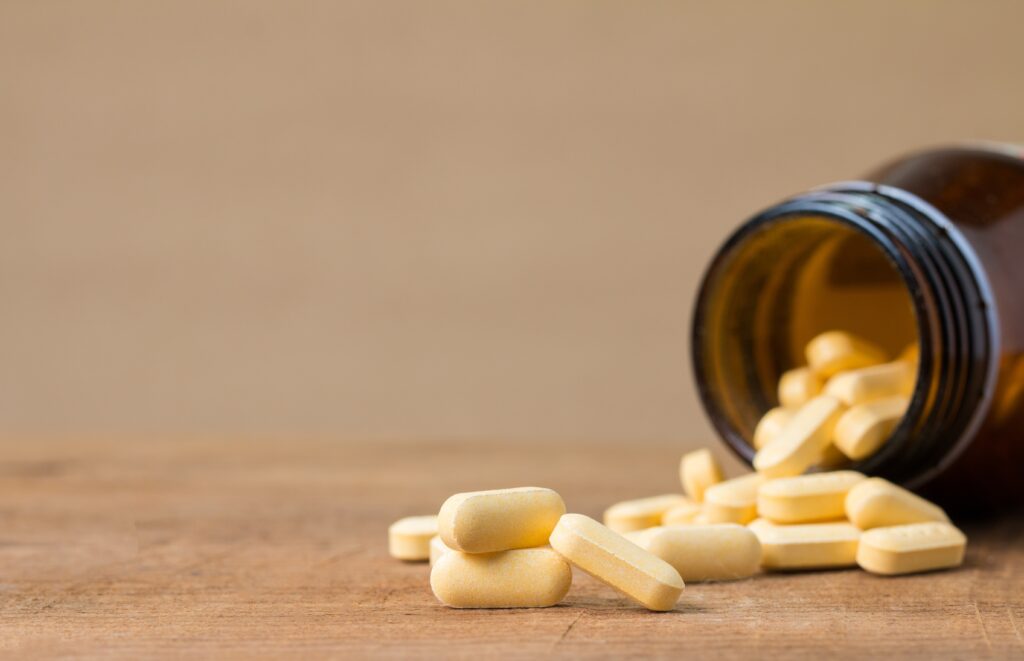Four supplements — collagen, ceramides, hyaluronan, and procyanidin — can increase skin hydration and ease dry skin, according to a study in Frontiers in Nutrition.
Scientists performed a meta-analysis and systematic review of 66 experiments involving skin health. The four beauty nutrients mentioned above were “proven to be effective” at boosting skin’s moisture content.
The researchers also looked at lactic acid bacteria and astaxanthin, both of which are associated with skincare benefits; however, they could not find “sufficient evidence” to recommend them as a way to defeat dry skin. Although a meta-analysis on the effect of lactic acid bacteria on skin moisturizing showed a non-significant result compared to placebo, a small number of studies indicated a slight improvement in skin barrier function after the daily intake of the lactic acid bacteria beverage, report the study team.
“The detailed mechanisms of oral skin moisturizers are complex, however, the aforementioned supplements [collagen, ceramides, hyaluronan, and procyanidin] and concerning moisture retention of skin share a common characteristic that they directly or indirectly supplement the nutrients for healthy skin so as to repair the skin barrier and function, achieving the improvement of skin hydration. Therefore, even though many foods such as fruits and vegetables can replenish the body’s water, they cannot fundamentally restore the water storage capacity of the stratum corneum, resulting in persistent dry skin,” say the authors.
CONCLUSION
Holistically, many of the dietary supplements produced a statistically significant effect on skin moisturizing compared to placebo, whereas there were still substantial skin-friendly supplements presenting no obvious beneficial effects on moisturizing. Some dietary supplements warrant more exploration via larger and more stringent research to identify the effect size, especially when it comes to polyphenols, carotenoids, aloe, and certain supplements merely reported by one research. Massive selected researches were small and lacked satisfactory quality in terms of designs and methods. Future studies have to ensure that trials are performed and reported using methods harboring as little bias as possible and in accordance with the CONSORT Statement for the report of clinic trials (105). At present, merely oral dietary supplements including collagen, ceramides, hyaluronan, and procyanidin are proven to be effective in skin moisturizing, whereas for skin moisturizing, the evidence supporting the recommendation of other dietary supplements, such as lactic acid bacteria and astaxanthin, is still insufficient.






